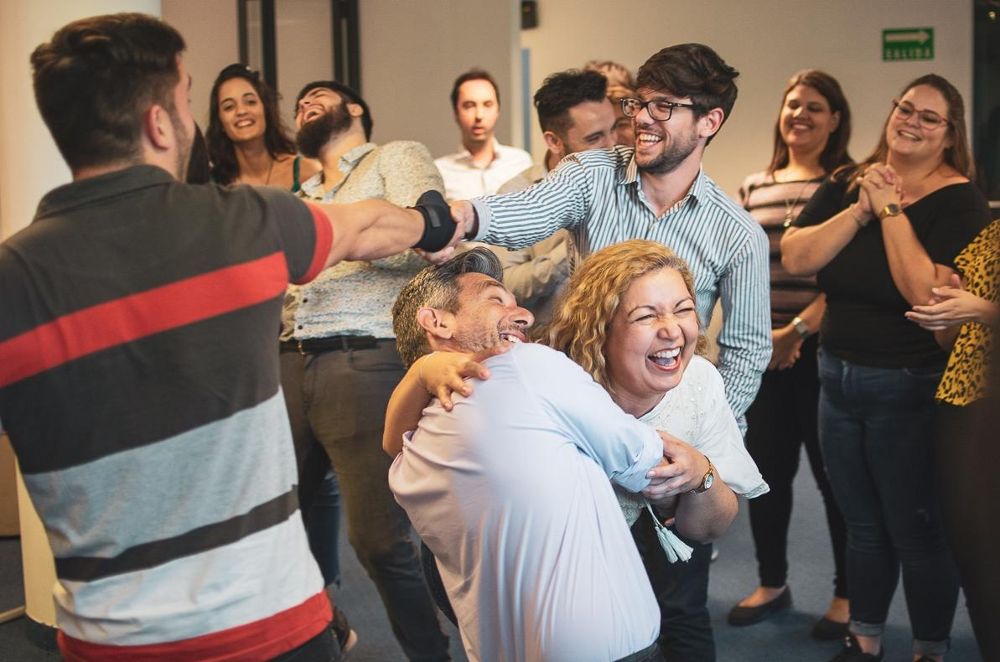Your View: I’ve benefited from DEI. It isn’t your enemy
Previously Published in The Morning Call
I’m a businesswoman without a college degree. I’ve had three children while building my career — three paid maternity leaves and three rounds of Family and Medical Leave Act. I’ve worked remotely for the past 20 years, and five years ago, I crossed the threshold into the over-50 workforce. I check a lot of boxes. I’ve also benefited from diversity, equity and inclusion initiatives. Today, I’m a senior leader at a company where most of our workforce is incarcerated women — another group that benefits from inclusive policies.
So when I hear people pushing back against DEI, I take it personally. But then I step back and realize people have a habit of voting against their interests, and DEI is no exception. The brand has been clouded by misconceptions and political agendas, making it easy for everyday people to believe it’s not for them. But here’s the truth — DEI has always been about creating opportunities that benefit everyone, not just a select few. The problem is we’ve been told that DEI is about lowering standards or giving unfair advantages when, in reality, it’s about breaking down barriers that have kept qualified people from the opportunities they deserve. DEI doesn’t replace merit — it reveals it. It ensures that opportunity isn’t just for those who check the “right” boxes but for those with the talent, skills, and drive to succeed — no matter their background.
Consider the diversity policies that improve workplaces today — flexible work arrangements, maternity and paternity leave, mental health resources, veterans’ programs, career reentry for parents and those with non-traditional paths, to name a few. These aren’t handouts; they result from intentional efforts to build workplaces that work for everyone. Yet, DEI is constantly painted as a threat, as if it’s taking something away from those who’ve always had a seat at the table.
Equality can feel like a loss when you’re used to being first in line. But I see it as the playing field finally being leveled, and while that might feel unsettling to those who have always had an advantage, it’s long overdue.
I’ve seen the power of advantage firsthand. I’ve used my influence to help friends, family members, college grads seeking their first break and people without degrees who, like me, just needed a way in. I’ve connected them to opportunities, secured internships and made introductions that changed the trajectory of their careers. Because I know how valuable those breaks are — and how often they determine success.
This is how opportunity has always worked — through connections that open doors for those lucky enough to have them. But what about those on the lower rungs of the economic ladder? Opportunity isn’t just scarce for them — it’s often out of reach. Who calls in favors on their behalf? More often than not, the answer is no one. That’s where DEI comes in. It opens doors that have been closed for too long. DEI doesn’t tip the scale–it balances it.
Business and political leaders rolling back DEI initiatives claim they’re “getting back to merit.” The implication is disgraceful—especially in a system where so many have relied on nepotism for advancement. What does merit really mean in a system that’s been inherently unequal for so long? If opportunities have always been handed out based on who you know, where you went to school or how well you fit into a narrow definition of success, then DEI isn’t the problem. It’s the solution.
DEI hasn’t always been executed perfectly. Sometimes, efforts have been overzealous, reactionary or implemented without the right leadership and strategy. Some initiatives have felt clumsy, more like box-checking exercises than meaningful change, leaving employees and leaders feeling unprepared and unsupported. But abandoning DEI altogether because of its imperfections is throwing the baby out with the bathwater. The answer isn’t to dismantle these efforts; it’s to refine them — ensuring they are intentional, sustainable and rooted in creating a fair and equitable workplace where everyone has a fair shot.
So, before you dismiss DEI as unnecessary, ask yourself: Have you ever benefited from a policy that made it easier for you to succeed? Did you take parental leave? Have you relied on flexible work, needed mental health support or gotten a second chance after a setback? If the answer is yes, then DEI has helped you. And you should, in turn, want it to help others.
The backlash against DEI has never been about fairness — it’s always been about fear. Fear that inclusion means losing exclusivity. But if your success depends on keeping others out, was it ever really success to begin with?
DEI is no threat to merit; it’s a chance to rethink it. And it’s already working in ways you may not even realize. The question is — will you stand by and let it disappear?
And if you still think DEI hasn’t impacted you — wait. Aging, health challenges, career pivots — life has a way of making inclusion personal. When that moment comes, you’ll want the doors to be open. Trust me.


